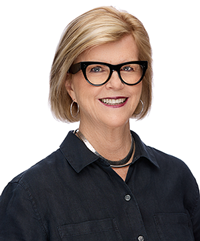The issue
Family caregivers play an essential role in our healthcare system. They support a range of important tasks including assisting a loved one with their routine activities; keeping track of medications; coordinating and attending medical appointments; and managing respiratory equipment.
According to the University of Alberta, family caregivers provide 90% of the care in the community and assist with 15-30% of the care in long-term care homes. That’s equivalent to approximately $5.7 billion of unpaid hours/year in Canada.¹
And yet, family caregivers are often underreported, unrecognized, and overused members of Canada’s health workforce. Adequately supporting family caregivers and including them in healthcare planning can enhance population health, contribute to healthcare savings, enhance workforce wellbeing, and support health equity.
The innovative work
On Tuesday, December 3rd, 2024, Health Workforce Canada partnered with the Caregiver-Centered Care Initiative and Alberta Health Services to deliver an informative webinar on their initiatives for supporting family caregivers. Dr. Jasneet Parmar, Lead Investigator at Caregiver-Centered Care; Isabel Henderson, Executive Director, Special Projects at Alberta Health Services; and Glenda Tarnowski, Growth and Partnerships Lead at Caregiver-Centered Care, shared their work and key learnings with over 150 webinar participants.

Glenda Tarnowski
Caregiver-Centered Care
Growth & Partnerships
Isabel Henderson provided an overview of initiatives underway at Alberta Health Services to support family caregivers. These include, but are not limited to:
- Promoting staff training to better support family caregivers as partners in care.
- Providing the Family Caregivers Toolkit for Virtual Home Hospital.
- Highlighting the role of Health Link staff (Alberta’s provincial hotline to provide trusted health advice) who support family caregivers with access to information, system navigation, and resources to manage care.
- Creating respite options for family caregivers to support sustaining care in the community.
- Establishing a formal link to Caregivers Alberta to fast-track referrals for family caregiver support.
- Developing partnerships with community organizations that support family caregivers.

“In Alberta, we see an increasing commitment to recognizing and empowering family caregivers. People understand the critical importance of providing the support that family caregivers deserve.”
-Isabel Henderson, Executive Director, Special Projects at Alberta Health Services
Dr. Parmar spoke about the Caregiver-Centered Care Initiative which focuses on closing one of the biggest gaps in support for family caregivers: the need to increase training for health and community care providers. Currently, few health and community care providers have received training in caregiver engagement, with some providers hesitating to engage with caregivers due to a lack of confidence, uncertainty on how to assist them, or due to limited time. Through the Caregiver-Centered Care Initiative, individuals can access free, online educational courses and resources to learn how to effectively support and partner with family caregivers.

“We need to grab hearts and minds and start thinking of family caregivers as care partners – not as people who ‘take up’ time or individuals who are difficult.”
-Dr. Jasneet Parmar, Lead Investigator of the Caregiver-Centered Care Initiative.
What we’re learning
Following the presentations, webinar participants were invited to share their own thoughts on what tangible actions could be taken to support family caregivers. Over 100 ideas were shared, with some highlighted below:
- Engage directly with patients and family caregivers, and listen to what they need.
- Educate health professionals to learn how to engage with and include family caregivers.
- Advocate for increased respite care options.
- Include check-ins with family caregivers as part of regular medical appointments.
- Develop policies and strategies to formally recognize and support family caregivers.
- Encourage healthcare providers to have three chairs in their office to make it easier to engage with the family caregiver during the medical appointment.
To learn more about the Caregiver-Centered Initiative, visit www.caregivercare.ca
What you can do next
- Encourage all health and community care providers who interact with family caregivers to take the Caregiver-Centered Care Education.
- Embrace family caregivers in your personal and professional lives by recognizing and partnering with them.
- Become a Caregiver-Centered Care Champion.
Do you know how many tasks are performed by family caregivers?
- 70% perform medical/nursing tasks to help care receivers manage pain and/or discomfort, including opioid injections such as morphine.²
- 82% of family caregivers manage medications, including insulin and antibiotics.³
- 37% deal with wound care (surgical wounds, ulcers, rashes, or sores).⁴
Sources
¹ Family Caregiving: Worth $97 Billion
² Home Alone Revisited: Family Caregivers Providing Complex Care
³ ibid
⁴ ibid

